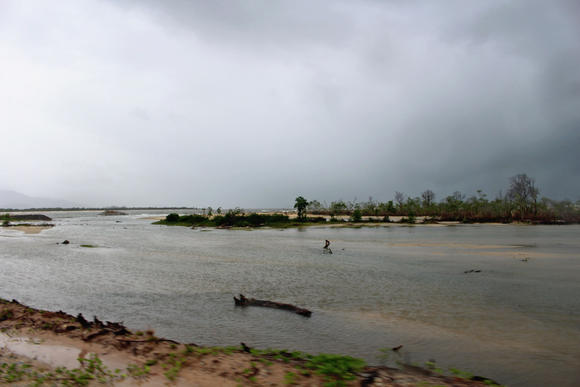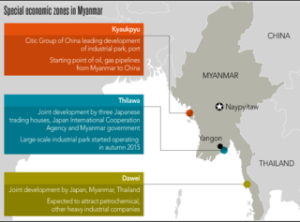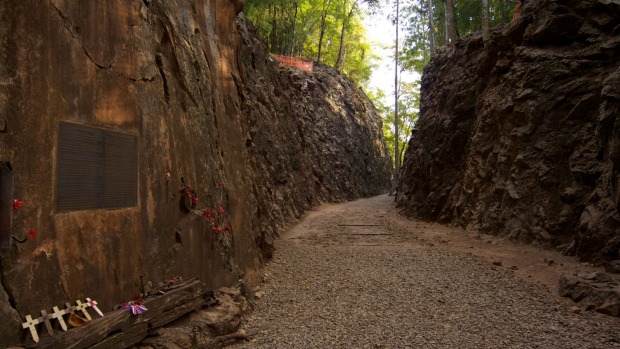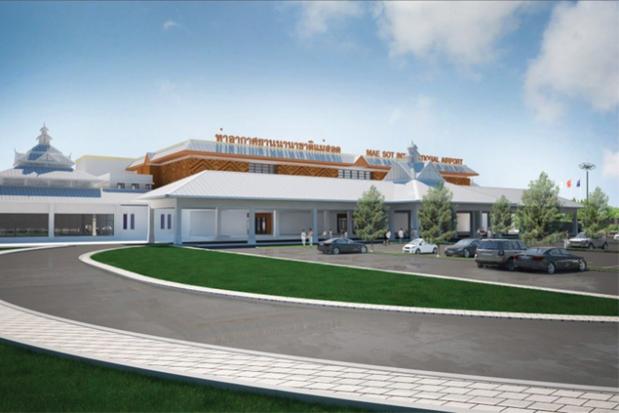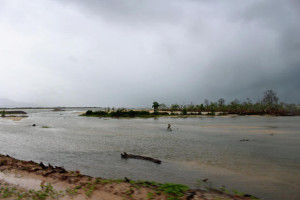
A Chinese state-affiliated company plans to build an oil refinery near a special economic zone in Dawei, Myanmar, a development led by the Japanese and Thai governments. The move may force Japanese companies to review their plans to pursue opportunities offered by the development of the Dawei special economic zone in the southwestern Myanmar city.
The government-appointed Myanmar Investment Commission at the end of March approved the project by Guangdong Zhenrong Energy, a Chinese trading house specializing in energy. Myanmar Economic Holdings, owned by the country’s military, and a local conglomerate will also participate in the project.
The first large-scale refinery in Myanmar is planned to be constructed at a cost of $3 billion and begin operating in around 2019, a local newspaper reported Thursday.
The plant will be capable of processing 100,000 barrels of oil per day. The project also envisages building a tanker port and facilities for liquefied natural gas.
Without a modern oil refinery, Myanmar has been reliant on imports of gasoline and other petrochemical products. Guangdong Zhenrong will sell most of the products from the planned refinery in Myanmar. The new facility is expected to attract a cluster of petrochemical companies to its area.
A major shareholder in Guangdong Zhenrong, founded in 2002, is a large state-owned Chinese importer of crude oil from the Middle East. Many see the presence of the Chinese government behind the Myanmar project.
China has so far had little to do with Dawei. The first development project in the city was undertaken by Italian-Thai Development, the biggest construction company in Thailand. The private-sector project to build an industrial park there became financially difficult and so was converted into a joint project between the governments of Myanmar and Thailand.
To cover the total cost of more than $9.24 billion, Myanmar and Thailand asked for Japan’s participation. With the Japanese government’s involvement, the Dawei SEZ project has become Japan’s second undertaking in Myanmar after the construction of the Thilawa SEZ led by three big Japanese trading houses.
China’s overture is apparently intended to drive a wedge into the trilateral Dawei project, taking advantage of opportunities arising from the pragmatic foreign policy adopted by Myanmar’s new administration, formed in March under the leadership of Aung San Suu Kyi.
The Chinese government approached Myanmar and increased its clout there as the latter’s international isolation deepened. But its influence has weakened as Myanmar under the former administration of Thein Sein sought to improve its relations with the West following the launch of democratic reforms in 2011.
Suu Kyi’s desire to patch up Myanmar’s ties with China, the country’s biggest trading partner and investor, became clear this week, when Chinese Foreign Minister Wang Yi became the first foreign dignitary Suu Kyi met in her capacity as foreign minister among other roles she has assumed.
The meeting between the two foreign ministers on Tuesday highlighted Suu Kyi’s practical stance that Myanmar will do business with a broader range of partners — not just Japan, the U.S. and European nations, but China as well — as long as it benefits her country.
Still, the latest Chinese project is a bolt out of the blue for Japanese companies planning to build major facilities, such as an electric power plant and a heavy and chemical industrial complex, in Dawei.
Although the refinery will be built outside the SEZ, the Japanese businesses are concerned that they will have to reconsider the entire SEZ plan if China takes a lead in the area’s development.
Source: http://asia.nikkei.com/Politics-Economy/International-Relations/Chinese-company-to-build-oil-refinery-near-Dawei-SEZ-in-Myanmar
